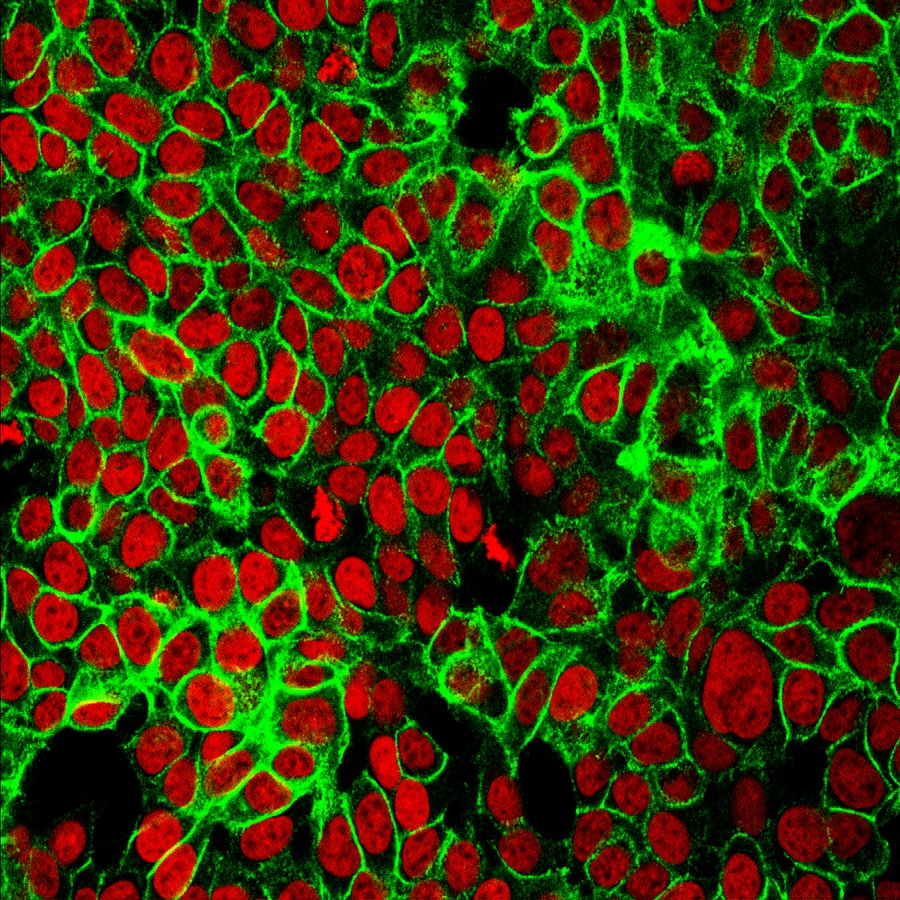Hispanic Heritage Spotlight: Interview with Dr. Rojelio Mejía
From the Labs sat with Dr. Rojelio Mejía, assistant professor of medicine–pediatrics, division of pediatric tropical medicine at Baylor College of Medicine. Mejía shared what inspired him to study tropical diseases, his approach to improve basic research in developing countries and something few people know about him.

How did the journey that brought you here today start?
I was born in Detroit, but my family moved to Guadalajara right after my birth, so I spoke Spanish first. We returned to Michigan when I was of kindergarten age. I remember not knowing how to speak English, but I picked it up in no time.
My mother is from Cozumel, Yucatán, Mexico. My father worked for General Motors as a machine operator. None of my family members works in the science field, but I found the motivation to go to medical school.
I completed my undergraduate studies at the University of Michigan and my medical studies at Michigan State. I continued my training with a residency at the University of Virginia and then spent five years at the National Institutes of Health working on an infectious diseases fellowship in tropical medicine.
By the end of my fellowship, Dr. Peter Hotez, dean of the National School of Tropical Medicine at Baylor, was moving to Houston. He invited me to join him as one of the original members of Baylor’s Department of Pediatrics, division of tropical medicine. I was excited to move to Houston and continue my research projects.
What is the main area of research of your lab?
I study human infectious diseases, specifically how parasites affect human health and poverty. Poverty and parasites go hand in hand. Living in poverty increases the risk of having parasites, which affect mostly children. Parasitic diseases reduce the chance of children finishing school, which in turn opens fewer future job opportunities, continuing the poverty cycle.
My lab wants to help reduce the impact parasites have mostly in children by providing diagnostic tools that are practical to use in developing countries. Having a correct diagnosis is a step toward receiving appropriate medical treatment to control parasitic infections.
Working with researchers in Ecuador, Colombia, Guatemala and other Latin American countries, we apply molecular approaches to develop these diagnostic tools, provide training and maintain supportive collaborations.
Although the connection between poverty and parasites is well-known in developing countries, we have found that parasitic infections also are prevalent and significantly affect the health of people living in areas of low socioeconomic status in the U.S..
Our studies in Hispanic communities called colonias in Texas, Alabama and Mississippi show that parasitic diseases, such as those caused by the round worms strongyloides and hookworm, are prevalent in colonias. We hope that our work contributes to raising awareness of these important medical conditions and motivates actions toward their solution.
What can institutions and researchers do to foster interest in scientific careers among Hispanics?
Raising awareness about the significant impact these neglected diseases have both in Latin American countries and in the U.S. is a first step toward finding solutions to control them.
I think that engaging Hispanics in science starts with leadership that keeps in mind the value of diversity in research teams. Developing groups that include Hispanic scientists that are invested in this type of research can bring solutions a step closer to reality.
Fostering collaborations with Latin American researchers in their own countries and in the U.S. by bringing our expertise to them, transferring appropriate technologies and providing training will strongly contribute to building the capacity to continue conducting research that leads to solutions.

Tell us something few people know about you?
I was a cook for about eight years before I went to medical school. My favorite foods are what my mom cooked when I was a child. I like enchiladas, seafood, menudo and tacos al pastor. I still love to cook!




